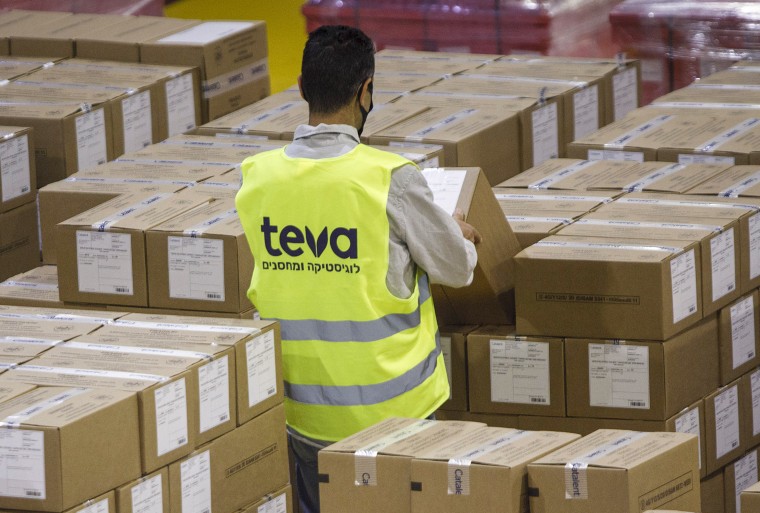Adderall is hard to find at some pharmacies following a labor shortage at the largest U.S. supplier
Labor #Labor

Some pharmacies are having difficulty filling prescriptions of the attention-deficit/hyperactivity disorder medication Adderall, following a labor shortage at the medication’s biggest U.S. supplier.
Yet the Food and Drug Administration said that, based on its monitoring of the supply of ADHD medications from all manufacturers, no shortage has been detected overall.
Only one company is reporting “intermittent delays,” FDA spokesperson Cherie Duvall-Jones said in an email. “Teva Pharmaceuticals, the maker for Adderall tablets, is reporting expected delays for the next 2-3 months.”
Teva Pharmaceuticals attributed the delay to a labor shortage on its packaging line that it said has been resolved. The company added that it has an “active supply” of branded Adderall and its generic version, and that while some pharmacies may experience a back order, it should be temporary.
 A worker inspects boxes of inventory at the Teva Pharmaceuticals factory in Kfar-saba, Israel, in 2021. Kobi Wolf / Bloomberg via Getty Images
A worker inspects boxes of inventory at the Teva Pharmaceuticals factory in Kfar-saba, Israel, in 2021. Kobi Wolf / Bloomberg via Getty Images
“We expect full recovery for all inventory and orders in the coming weeks, at which point we expect no disruption at the pharmacy level,” spokesperson Kelley Dougherty said in a statement.Large pharmacy chains have not reported widespread problems. CVS Pharmacy said its locations were “not experiencing supply issues for Adderall and are able to fill prescriptions as received in most cases.” Walgreens said its “current supply is meeting our patient needs at this time.”
However, a survey by the National Community Pharmacists Association, conducted from July 25 through Aug. 5, found that of about 360 independent pharmacies that responded, approximately 64% were having difficulty obtaining Adderall.
Some small pharmacies told NBC News that they continue to encounter issues.
At Roger’s Family Pharmacy in Yankton, South Dakota, pharmacist owner Byron Olson said some formulations of the medication have been harder to get than others.
“It’s often that they’re not out entirely,” he said of the drug manufacturers, explaining that patients who take 20 mg twice a day, for example, might have to work with their doctors to get alternative pill sizes.
In rare cases, patients might have to temporarily switch to another medication altogether, he added.
“It can be frustrating for patients because they don’t know about the shortages,” Olson said.
Meanwhile, at Killingworth Family Pharmacy in Killingworth, Connecticut, pharmacist owner Keith Lyke said he has been receiving patients from other pharmacies over the past month who have been unable to fill their Adderall prescriptions elsewhere. While he has found the drug to be out of stock from some manufacturers, generics from other suppliers have been easy enough to obtain.
“We tell them it’s a different company, so it may look different,” he said.
ADHD is a neurodevelopmental condition marked by inattentiveness, impulsivity and/or hyperactivity that is severe enough to interfere with school, work and other aspects of life. The Centers for Disease Control and Prevention estimates, based on data from 2016 to 2019, that approximately 10% of children are diagnosed with it, with boys more likely to receive a diagnosis.
Adderall and other stimulant drugs are a common and effective way of managing ADHD symptoms.
However, Adderall has the potential to be abused if taken improperly or without a prescription. Telehealth startups such as Cerebral and Done Health, which gained footing during the pandemic and prescribe stimulants, raised questions among pharmacies about whether Adderall was being overprescribed. Former and current employees of those companies told The Wall Street Journal that they felt pressured to prescribe medication without adequate time to make a diagnosis.
In May, Walmart and CVS announced they would stop filling prescriptions for controlled substances from those telehealth firms.
Demand for Adderall is higher than ever: Prescriptions dispensed in the U.S. spiked to 41.4 million last year, up 10.4% from 2020, according to The Wall Street Journal.
But that doesn’t mean that all ADHD diagnoses made during the pandemic were illegitimate, said Dr. David W. Goodman, an assistant professor of psychiatry and behavioral sciences at Johns Hopkins School of Medicine.
“There are a lot of people presumably with ADHD who’ve never been diagnosed and never been treated,” Goodman, a former board member for the advocacy organization Children and Adults with Attention-Deficit/Hyperactivity Disorder, said.
During pandemic lockdowns, some people’s symptoms may have become more salient, Goodman said, “because the routine of the day of going to work and working with co-workers and having an external structure was eliminated.”
“So now people have to stay at home and institute structure themselves, which is very difficult for them, and the family members at home would then come to realize, you know, this person is consistently inconsistent,” he said.
There have been shortages of ADHD stimulants before: The FDA reported a shortage from September 2019 through May 2022.
Goodman advised patients who take Adderall to anticipate potential difficulty with their prescription refills and to work with their doctors and pharmacies to get alternatives if they run into issues.
“It’s unpredictable. We can be sailing along fine and then we run into a shortage.”
“It’s unpredictable. We can be sailing along fine and then we run into a shortage,” he said.
He added that in his experience, the worst-case scenario — a patient unable to obtain any medication at all — doesn’t last long, even during supply shortages.
“Usually it’s a matter of a few days or within a week,” he said.